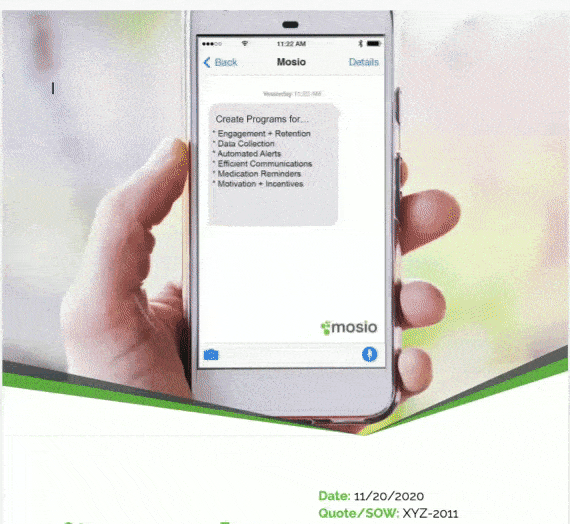Research coordinator skills encompass a range of abilities crucial for managing complex clinical trials. These skills enable professionals to hit the ground running with medical research while ensuring participant safety and data integrity.
Are you…
- Overwhelmed by the challenge of keeping participants engaged?
- Struggling to juggle multiple tasks efficiently?
- Looking for ways to minimize errors and streamline your workflow?
Clinical research coordinators face numerous hurdles in their day-to-day roles. Mastering essential skills can dramatically improve study outcomes and overall effectiveness.
This article is for:
- Clinical research coordinators aiming to enhance their professional toolkit.
- Principal investigators seeking to build high-performing research teams.
- Project managers focused on optimizing participant engagement and retention.
10 Must-Have Research Coordinator Skills
1 – Communication Skills
Effective communication is an essential pillar of successful clinical research. Coordinators must find ways to convey complex information clearly to participants, investigators, and sponsors. Communicating with the patient matters at every single stage of the clinical trial and supports recruitment, enrollment, and retention.
Coordinators with strong communication skills typically excel at:
- Translating medical jargon into accessible language.
- Addressing participant concerns promptly and empathetically.
- Fostering collaboration among research team members.
- Ensuring smooth information flow between all stakeholders.
2 – Organizational Ingenuity
Juggling multiple tasks, from participant schedules to regulatory documents, demands exceptional organizational skills. Without them, crucial details may slip through the cracks and jeopardize study integrity.
Highly organized coordinators:
- Develop and maintain meticulous schedules and timelines.
- Create efficient filing systems for study documents.
- Prioritize tasks effectively to meet deadlines.
- Implement strategies to track participant progress and follow-ups.
3 – Attention To Detail
Precision in clinical research can make or break a study. Even minor oversights can lead to significant consequences. Single-entry error rates range from 4 to 650 errors per 10,000 fields. Just a handful of data errors can have a significant impact on the quality of your clinical research. As a coordinator, you must have a keen eye for detail.
Detail-oriented coordinators:
- Scrutinize all data entries for accuracy.
- Follow study protocols to the letter.
- Review regulatory documents with a fine-toothed comb.
- Identify potential issues or discrepancies early in the research process.
4 – Ethical Judgment
A recent survey found that nearly three-quarters of respondents cited an institution’s reputation as a key factor to consider when deciding whether to participate in a study. Safeguarding participant rights and maintaining study integrity form the ethical foundation of clinical research.
Ethical coordinators consistently:
- Ensure thorough and transparent informed consent processes.
- Protect participant confidentiality and data privacy.
- Identify and address potential conflicts of interest.
5 – Technical Savvy
Proficiency with clinical research systems and data management tools has become indispensable. Coordinators must navigate various software platforms to conduct studies efficiently.
Technically adept coordinators:
- Quickly adapt to new electronic data capture (EDC) systems.
- Leverage clinical trial management software effectively.
- Understand database management and data analysis tools.
- Troubleshoot common technical issues independently.
6 – Time Management Mastery
Balancing multiple studies and tasks requires exceptional time management. Clinical research coordinators who can master time management will inevitably see an increase in their productivity.
Coordinators who manage time effectively:
- Prioritize tasks based on urgency and importance.
- Utilize time-blocking techniques for focused work periods.
- Delegate tasks appropriately to team members.
- Regularly assess and optimize their workflows.
7 – Interpersonal Skillfulness
Building rapport with participants significantly impacts study success. Strong interpersonal skills contribute to better participant retention and compliance.
Coordinators with excellent interpersonal skills:
- Practice empathy and active listening.
- Demonstrate cultural sensitivity and adaptability.
- Navigate conflicts with grace and resolution.
- Foster team collaboration and leadership.
8 – Analytical Acumen
Data analysis forms a critical component of clinical research. Coordinators must interpret data swiftly and identify trends or issues as they arise.
Analytically sharp coordinators:
- Grasp basic statistical concepts with ease.
- Spot patterns and anomalies in complex datasets.
- Draw meaningful conclusions from research findings.
- Present data in clear, understandable formats.
9 – Adaptability
The dynamic nature of clinical research often necessitates adjustments to protocols or procedures. Adaptable coordinators confront these changes with agility and composure.
Flexible coordinators:
- Adjust quickly to protocol amendments.
- Handle unexpected challenges with poise.
- Embrace emerging technologies and methodologies.
- Remain resilient in the face of shifting priorities.
10 – Problem-Solving Prowess
Unexpected challenges frequently arise in clinical research. Strong problem-solving skills enable coordinators to address issues effectively and keep studies on track.
Skilled problem-solvers:
- Pinpoint the root cause of issues.
- Generate multiple potential solutions.
- Evaluate and select the most appropriate course of action.
- Implement and monitor the effectiveness of their chosen solutions.
Mastering these 10 essential skills will propel clinical research coordinators to new heights of effectiveness, contribute to more successful studies, and open doors to career advancement in this critical field.
Using Tools To Improve Your Effectiveness As A Research Coordinator
To improve your research coordinator skills, consider the following first steps:
- Conduct a candid self-assessment of your current abilities.
- Identify specific areas ripe for growth or development.
- Seek out targeted training opportunities and resources.
- Refine your approach through consistent practice and feedback.
- Integrate new tools into your technology stack to improve your effectiveness.
This brings us to Mosio, a two-way text messaging platform designed to simplify life for clinical research coordinators. You can use Mosio to create automated text message programs to improve patient adherence, engagement, and data collection.
When coordinators have Mosio in their technology stack, they no longer have to worry about manually sending reminders, alerts, and surveys to patients. If you are trying to improve your effectiveness as a coordinator and run a tighter ship, integrating Mosio into your clinical research is an easy win.





